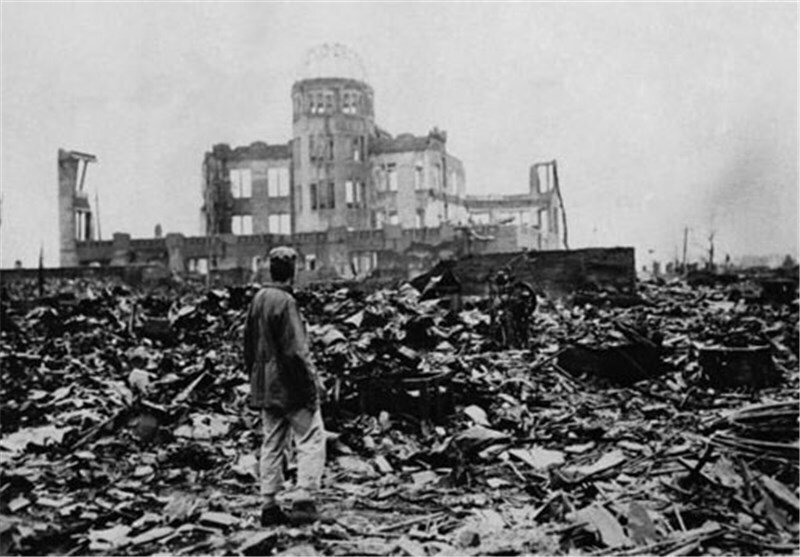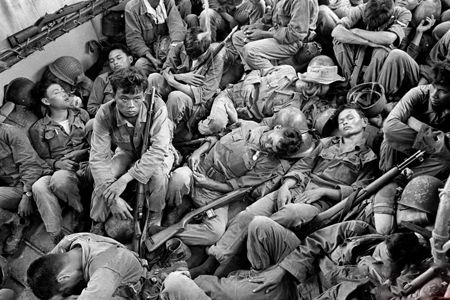irdc.ir: "Contradiction" is a prominent feature of the American policy; where the slogan of human rights is chanted and at the same innocent people get bombed. According to researchers, America not only interferes with the fate of other countries with the human rights motto and carries out anti-human rights activities against them, but also has the same policy towards its people. This "contradiction" has prompted many theorists, politicians, and writers to raise the most important criticisms against this political system by deeply studying it. Among these writers and theorists, we can mention the famous American writer Michael Prentice, who makes important and thought-provoking criticisms of America's political, economic, social, and cultural structure. What you are reading below is a part of a book named "Democracy for the Minority" which is written by him, and translated and printed by the Islamic Revolution Documentation Center:
At various times, US Democratic and Republican leaders have supported brutal wars of attrition against riots in Guatemala, El Salvador, Haiti, Thailand, Vietnam, Cambodia, Laos, and other countries. Torture and killing with the use of death squads have been common counterinsurgency methods in all of these areas. In 1999, Clinton apologized for the US government's support of Guatemala's brutal right-wing governments over the years, which killed more than 200,000 people. The president said that such involvement "in widespread violence and repression was wrong" and that this "slip" should never be repeated, however at the same time, he supported the violent invasion of Iraq, Yugoslavia, Haiti, Somalia, and other countries.
From 1959 to 1975, American forces dropped approximately eight million four hundred thousand tons of bombs and napalm plus eighteen million barrels of defoliating chemicals in Vietnam, which destroyed more than forty percent of its fields, gardens, forests, and most of its water resources. Several million Vietnamese, Laotians, and Cambodians were killed, millions were maimed or poisoned, and nearly ten million were left homeless.
About 58,000 Americans lost their lives and hundreds of thousands were injured or disabled. But the war was profitable for the ten largest military contractors (including DuPont, ITT, and Dow Chemical), whose impure revenue was $11.6 billion (in 1973 dollars). From 1979 to the 1990s, America helped members of the crazy Vintage Rouge in Cambodia to weaken the country's socialist-leaning government, and so this civil war caused the lives of ten thousands of people.

As countries like China, Russia, Vietnam, Libya, and Mozambique abandoned communal programs and left their economies open to private investment, America showed more friendliness. Mozambique, for example, privatized nearly 1,500 state-owned enterprises and deprived many others of governmental support, leading to widespread unemployment and deep poverty in the country.
Capitalist privatization in the former communist countries of the Soviet Union and Eastern Europe brought many factory closings, drastic cuts in human services, an increase in unemployment, poverty, more crimes being committed, homelessness, prostitution, and other so-called bounties of the free-market paradise.
Colombia is another country with a history of US-funded repression, including the organized killing of tens of thousands of workers, students,farmers and priests by armed forces and militias for trying to act against their masters. Since 1986, about 2,000 Colombian trade unionists have been killed by CIA-backed squads. In addition to weapons and helicopters, the US military supplies these forces with leaf-dropping materials that harm the environment and the people of Colombia.
American multinational corporations pay the police and military of countries such as Indonesia, Nigeria, India, Burma, and Colombia to beat, arrest, and even kill labor activists or people who protest against environmental damage and human displacement. Although US statesmen talk about human rights, they use force and violence to maintain "pro-Western" governments around the world. Protests are banned, unions are destroyed, wages are cut, and dissenters are killed.
In the late 1980s, the US National Security Administration helped Mexico eliminate progressive reformist elements. Mexican authorities have admitted that at least 275 political dissidents have been tortured and killed. One survivor described how she was raped and tortured, then forced to watch her husband and one-year-old daughter being tortured. US agents have repeatedly manipulated the results of elections in Jamaica, Chile, El Salvador, Panama, Yugoslavia, and other countries using large sums of money, fraudulent vote counting, and directed intimidation.
But if, despite all these efforts, the election results are still not satisfactory for the American leaders, they will claim that it is "rigged" and "a lie" (and it doesn't matter if the international observers accept this claim or not). This happened in the revolutionary Nicaragua of the eighties, the socialist Yugoslavia of the nineties, and the year 2000, with the reformist Haiti of the year 2000.
Such countries are the targets of destabilization operations of the US rulers. After Hugo Chávez became the president of Venezuela, he used his oil revenues for social programs for the poor. Predictably, the White House exaggeratedly called him a dictator, a warmonger, and an enemy of the United States, and accused him of misrepresenting America's efforts to establish friendly relations.
In the wake of the September the 11th, 2001 attacks (which are still unanswered), Bush invaded Afghanistan, vowing to capture the notorious terrorist Osama bin Laden. Over the next nine years, the anti-American resistance in Afghanistan grew stronger than ever, and US forces The United States was becoming increasingly mired in a costly battle against the hard-line Muslim Taliban militants.Some informed observers, including General David Petraeus, believe that al-Qaeda terrorists left Afghanistan long ago.

About a hundred member countries of the International Criminal Court approved in 2002 that those political leaders who commit war crimes and human rights violations will be prosecuted. Because the United States was unable to obtain immunity for its officials, George W. Bush withdrew from the treaty that established the court and declared that it was no longer bound by the requirements of international law and previous treaties.
The US government pressured member states of the court to grant immunity to Americans, thereby undermining the court. Angola was the 100th country to finally agree to immunity in May 2005, and if it didn't, it would have lost all the US aid.
Despite widespread anti-war protests in the world and America, Bush invaded Iraq in March 2003 and claimed that Saddam Hussein had weapons of mass destruction. This claim was later proven to be false. The war was expected to be a quick and profitable gamble that would give US oil interests access to Iraq's vast oil reserves and get rid of a government that had nationalized the country's economy.
Iraq did not see any signs of peace until six years later, and American casualties reached 4,500 dead and more than 30,000 wounded. One million and three hundred thousand Iraqis were also killed and many were wounded, and a large part of this country was destroyed.
Sectarian violence has increased in Iraq, Shias and Sunnis are attacking Americans and each other. American bullets have contaminated the entire country with depleted uranium. American officials once again lied to the Iraqi people by privatizing a major part of the state economy. Prices raised, food and housing subsidies disappeared, and pensions were cut for the very poor.
In 2010, Obama planned to reduce the number of US troops stationed in Iraq; but at the same time, it spread the crisis in Afghanistan. Obama increased the number of troops in Colombia and did nothing to compensate for the reactionary military coup in Honduras. This coup overthrew a democratically elected president who had the audacity to raise the legal minimum wage for poor workers.
Obama continued to threaten Iran and tightened sanctions on North Korea. He has not shown a new bright spot in the field of foreign relations.
If we consider "imperialism" as a relationship in which dominant interests in one country have gained superiority by using the military and economic power, land, labor and natural, financial and political resources of another country, the United States is the greatest imperialist power in history.
American expansionism has expanded global corporate investment opportunities and destroyed them if revolutionary, reformist and even conservative nationalist social systems (such as Iraq) want to spend their resources and labor on their way to independence and harm the profitability and dominance of the global empire. The profits of this empire go into the pockets of several hundred companies and financial institutions, and its exorbitant costs are imposed on the common people of America and other countries.
Subscripts:
1- A type of incendiary bomb whose use is prohibited by international treaties due to its dire effects.